Director, United Nations University Institute for the Advanced Study of Sustainability (UNU-IAS)

Opening Remarks
Kazuhiko Takemoto
Director, United Nations University Institute for the Advanced Study of Sustainability (UNU-IAS)
Director General and CEO, International Institute for Applied Systems Analysis (IIASA)
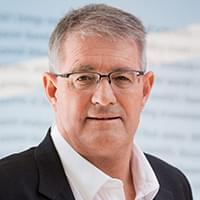
Keynote Presentation
Albert Van Jaarsveld
Director General and CEO, International Institute for Applied Systems Analysis (IIASA)
Albert van Jaarsveld was appointed the eleventh Director General of the International Institute for Applied Systems Analysis (IIASA) in 2018. Prior to joining IIASA, Van Jaarsveld was the Vice-Chancellor and Principal of the University of KwaZulu-Natal in South Africa, and the President and CEO of the South African National Research Foundation (NRF).
Van Jaarsveld earned his Ph.D. in Zoology from the University of Pretoria, pursued postdoctoral studies and research in conservation biology and global security in Australia and the UK respectively, and completed executive management training at Harvard University. His research focused on biodiversity and conservation planning, biodiversity and climate change, as well as ecosystem services. He was appointed full professor at both the University of Pretoria and the University of Stellenbosch and has published more than 100 primary research papers, including highly cited works in Science and Nature.
On the international front, van Jaarsveld has served as co-chair of the Millennium Ecosystem Assessment follow-up: Sub-global assessments and as a member of the International Council for Science (ICSU) nominations committee. He has also held such positions as the Intergovernmental Science-policy Platform on Biodiversity and Ecosystem Services science focal point; Chair of the G8 science ministers’ group of senior officials on global research infrastructure; Chair of the International Group of Funding Agencies; Co-Chair of the Belmont Forum; and a member of the ICSU review panel (2013-2014) and the IPBES external review panel (2018-2019).
Executive Director, IGES
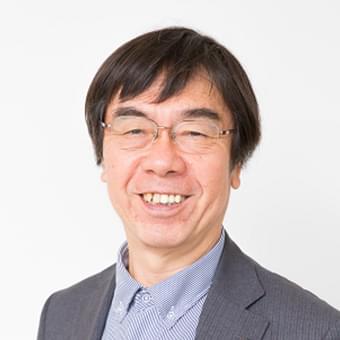
Moderator
Hideyuki Mori
Executive Director, IGES
Hideyuki Mori is a graduate of the School of Engineering, Kyoto University. He joined IGES in 2003. Prior to joining IGES, he served as Environment Specialist at the Asian Development Bank, Senior Environmental Coordinator of the United Nations High Commissioner of Refugees, Director of the Office of Research and Information at the Global Environment Issues Division of the Environment Agency of Japan (present Ministry of the Environment), and as Portfolio Manager of the Division of GEF at the United Nations Environment Programme. He was a professor at Keio University from 2008-2010. He has served as the Executive Director of IGES since 2010.
.jpg)
.jpg)
.jpg)
.jpg)
.jpg)
.jpg)
A key message from the Intergovernmental Panel on Climate Change’s (IPCC) 1.5 C special report is that limiting global warming to safe levels will require transformational change. A growing body of research has identified key pathways consistent with the 1.5 C goal. Many of these require adopting policies and programmes that not only respond to climate change, but also address other development priorities. For example, several policies that help control air pollution also mitigate climate change. Further, some nature-based adaptation strategies simultaneously mitigate greenhouse gases (GHGs). Programmes that help laid-off coal workers find jobs in the renewables industry reflect a similarly integrated logic. Each of these examples is an important illustration of a solution that aligns climate with broader development goals. However, for many countries, achieving ambitious climate goals will require moving beyond one or two integrated solutions, and transitioning to decision-making processes that consistently consolidate climate and other development objectives. Unfortunately, many policymakers lack the analytical tools and practical experience necessary to consistently seize opportunities for synergy, and avoid trade-offs between climate and development goals in these processes. This session will draw upon insights from leading thinkers about how research institutions can help policymakers in Asia meet the urgent need for integrated climate and development policies.
Research Leader, Strategic and Quantitative Analysis Centre, IGES
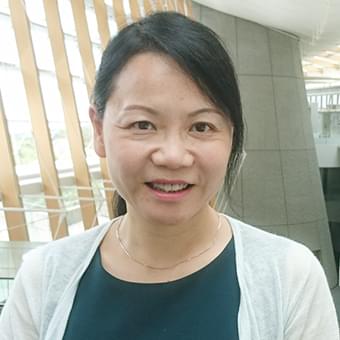
Framing Presentation
Zhou Xin
Research Leader, Strategic and Quantitative Analysis Centre, IGES
Dr. Xin Zhou is a Research Leader at the Strategic and Quantitative Analysis Centre (QAC) at the Institute for Global Environmental Strategies. Currently, she is leading quantitative policy research in the areas of SDG interlinkages analysis and visualisation, green investment and green jobs assessments, and the water-energy nexus. In recent years, she led a wide array of policy assessment projects, including, but not limited to: the implications of nationally determined contributions (NDC) on the labour market in Indonesia, an assessment of carbon pricing and border carbon adjustment on industrial competitiveness and carbon leakage in Japan, an assessment of embodied emissions and international trade for Asian countries, an assessment of environmental goods and services sectors and their effects on employment in north-eastern Asian countries, as well as the development of the Japan 2050 Low Carbon Navigator.
She received a Ph.D. in Environmental Studies from Nagoya University, Japan, in 2007. Before that, she had been working with the Policy Research Center for Environment and Economy (PRCEE), the Ministry of Environmental Protection, China, since 1994. As Director of the Policy Research Division, she led many policy research supporting national policy-making on the environment. She has received several national scientific achievement prizes for her academic and social contributions to the Chinese government.
Director General and CEO, International Institute for Applied Systems Analysis (IIASA)

Albert Van Jaarsveld
Director General and CEO, International Institute for Applied Systems Analysis (IIASA)
Albert van Jaarsveld was appointed the eleventh Director General of the International Institute for Applied Systems Analysis (IIASA) in 2018. Prior to joining IIASA, Van Jaarsveld was the Vice-Chancellor and Principal of the University of KwaZulu-Natal in South Africa, and the President and CEO of the South African National Research Foundation (NRF).
Van Jaarsveld earned his Ph.D. in Zoology from the University of Pretoria, pursued postdoctoral studies and research in conservation biology and global security in Australia and the UK respectively, and completed executive management training at Harvard University. His research focused on biodiversity and conservation planning, biodiversity and climate change, as well as ecosystem services. He was appointed full professor at both the University of Pretoria and the University of Stellenbosch and has published more than 100 primary research papers, including highly cited works in Science and Nature.
On the international front, van Jaarsveld has served as co-chair of the Millennium Ecosystem Assessment follow-up: Sub-global assessments and as a member of the International Council for Science (ICSU) nominations committee. He has also held such positions as the Intergovernmental Science-policy Platform on Biodiversity and Ecosystem Services science focal point; Chair of the G8 science ministers’ group of senior officials on global research infrastructure; Chair of the International Group of Funding Agencies; Co-Chair of the Belmont Forum; and a member of the ICSU review panel (2013-2014) and the IPBES external review panel (2018-2019).
Director, Asia and the Pacific Office, UN Environment (UNEP-ROAP)
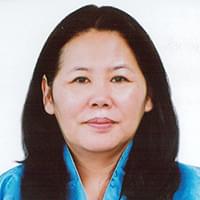
Dechen Tsering
Director, Asia and the Pacific Office, UN Environment (UNEP-ROAP)
Dechen Tsering was appointed as the regional director of UN Environment in Asia and the Pacific in March 2017. As the regional arm of UN Environment, headquartered in Nairobi, Kenya, the Asia-Pacific office works with governments, local authorities and the private sector to develop and put into place cleaner and safer policies and strategies that encourage the efficient use of natural resources and reduce risks for humans and the environment.
Ms Tsering has held management and leadership positions with the United Nations and has over 25 years of experience in national government and intergovernmental organisations. She has been actively involved in intergovernmental negotiations as a key negotiator for least-developed countries and contributed to the establishment of the Least Developed Countries Fund and the Least Developed Countries Expert Group. She also has experience in the management of complex development projects.
She comes to UN Environment from the United Nations Framework Convention on Climate Change secretariat, where she served as director of the Finance, Technology and Capacity-building Programme. In that position, she supported international co-operation on mobilisation of finance, technology development and transfer, and capacity building to enable countries to take enhanced action on climate change. Prior to that position, she was the deputy regional director of UN Environment in Asia and the Pacific.
Ms Tsering holds a PhD in forest economics and policy from the Federal Institute of Technology, Zurich. She also has a master’s degree from Georgetown University and undergraduate degrees from the University of California, Berkeley.
President, Korea Environment Institute (KEI)
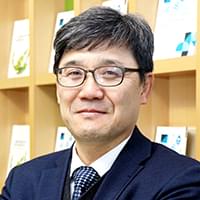
Yoon Jeyong
President, Korea Environment Institute (KEI)
President Jeyong Yoon of the Korea Environment Institute (KEI) was inaugurated as the twelfth president of KEI in December 2018.
Prior to becoming the President of KEI, he was a professor in the Department of Chemical and Biological Engineering at Seoul National University. He has been conducting research for the development of environmental policy for inclusive development with a focus on water environment energy convergence technology, resource recovery, and desalination technology. He is also one of the leading figures in appropriate technology and science and technology ODA (official development assistance), serving as the President of the Academic Society for Appropriate Technology and the President of the Scientists and Engineers without Borders.
He was appointed as a member of the Presidential Advisory Council on Science and Technology and as a member of the Presidential Committee on Sustainable Development.
He holds a Ph.D. in Civil Engineering from the State University of New York at Buffalo.
Chief Director, National Institute for Environmental Studies (NIES)
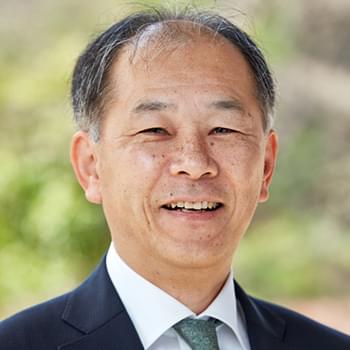
Chiho Watanabe
Chief Director, National Institute for Environmental Studies (NIES)
Chiho Watanabe is Chief Director of the National Institute for Environmental Studies, National Institute for Environmental Studies (April, 2017), as well as Professor Emeritus of the University of Tokyo. His specialty fields are human ecology, environment and health, environmental toxicology. He holds a Doctor of Health Sciences (The University of Tokyo, 1991). His publications include "Sustainability challenges: Elucidating sustainability-health intersections" (co-edited, Current Opinion in Environmental Sustainability), "Human ecology" (co-edited by Asakura Shoten), "Science of toxicity" 2017, 25 Special Issue) etc. He has held positions including Vice Chairman of the Society of Human Ecology (2011-2017), and Chairman of the Japan Health Association (2017 ~).
Deputy Director General at the International Centre for Integrated Mountain Development (ICIMOD)
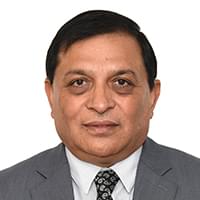
Eklabya Sharma
Deputy Director General at the International Centre for Integrated Mountain Development (ICIMOD)
Dr. Sharma is an ecologist with over 35 years of experience on sustainable mountain development in the Hindu Kush Himalayan (HKH) region. Engaging over 350 scientists around the globe, he steered the 5-year HKH Assessment, which was published in Nature in 2019. His contributions cover such areas as: sustainable natural resource management; biodiversity conservation and transboundary landscape management; agroforestry, forests, and agriculture; biogeochemical cycling in ecosystems with a special thrust on nitrogen fixation, phosphorus solubilisation and biological maintenance of soil fertility; watershed management including land-use and cover change, hydro-ecological linkages and carbon dynamics; and climate change impact assessments, adaptation, and resilience.
He has worked to develop regional cooperation among the eight countries of the HKH with particular focus on science-policy-practice, transboundary landscape management, upstream-downstream relationship, and innovations in resilience building. He has also published more than 200 articles and books on mountain ecology and development. Moreover, he has contributed to the global mountain agenda through the IPBES, CBD, and UNFCCC processes. He has also supervised seven PhD theses in ecology, primarily dealing with natural resource management of the Eastern Himalayas.
Dr. Sharma has received many national and international awards for his work. He is currently a Fellow of the National Institute for Ecology, India; a Fellow of the National Academy of Sciences, India; and a Fellow of the Indian National Science Academy, India.
Research Leader, Sustainability Governance Centre, IGES

Moderator
Eric Zusman
Research Leader, Sustainability Governance Centre, IGES
Eric Zusman is a Senior Policy Researcher and Area Leader at the Institute for Global Environmental Studies in Hayama, Japan. He holds a Bachelor’s degree in Mandarin Chinese from Rutgers University, a dual Master’s Degree in Public Policy and Asian Studies from the University of Texas at Austin and a Ph.D. in Political Science from the University of California, Los Angeles. For much of the past decade, he has worked on environmental issues in Asia. This has included publishing articles and book chapters on water scarcity, air pollution regulation, environmental law, and state capacity in Greater China. He has also worked with China’s Yellow River Conservancy Commission and the Chinese Research Academy on Environmental Science. In addition, he has also held research assistantships with the Woodrow Wilson Center’s China Environment Forum in Washington D.C., as well as Taiwan’s Academia Sinica. In his current position, he is looking at the co-benefits of climate policies in developing Asia.
.jpg)
.jpg)
.jpg)
.jpg)
.jpg)
.jpg)
.jpg)
.jpg)
.jpg)